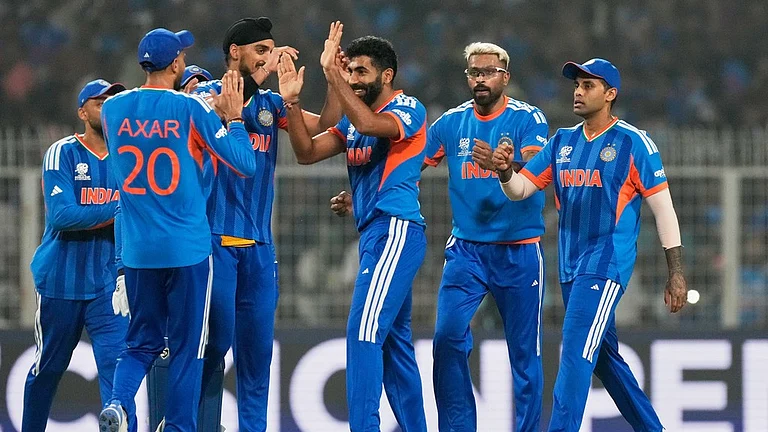According to a top bureaucrat who was briefed by Rajiv Gandhi after his meeting with the Tigers, the former prime minister was aware of the growing concern in the LTTE over the possibility of the Indian armed forces being redeployed in Jaffna should the Congress win in the 1991 general elections. The bureaucrat said that Rajiv Gandhi wanted to assure the LTTE leadership that the Indian Peace Keeping Force's (IPKF) intervention in north Sri Lanka was a closed chapter.
"I met them (the LTTE) and told them that I have no interest in sending the IPKF to Jaffna or interfering in their affairs," Rajiv Gandhi later informed the bureaucrat. The former prime minister had been warned by associates that it would be useful to clear his stand with the LTTE before launching his election campaign. Rajiv Gandhi had earlier expressed his displeasure at the withdrawal of the IPKF from Sri Lanka by the V.P. Singh government.
The IPKF's role in Jaffna had come up for much criticism from the Tigers as well as Tamil Eelam sympathisers in India. While the Indian forces found the going difficult in the jungles of Jaffna and finally had to withdraw, the Indian presence in Sri Lanka was seen as a clear indication that India under Rajiv Gandhi would not support the LTTE.
The bureaucrat's revelation, which is to be published later this year, is likely to give a new twist to the probe into the assassination of the former prime minister. If Rajiv Gandhi had talked peace with the top Tiger leadership, then would the militant organ-isation plan an assassination which would virtually blacklist it in Tamil Nadu, a state which has for years been a base for the Tigers from across the Palk Strait.
The LTTE has all along been categorical in denying its involvement in the assassination, although those arrested in connection with the killing have very definite links with the Tamil militant organisation. The Special Investigation Team probing the assassination says it has enough clinching evidence to narrow down the focus of scrutiny to an operation which was plotted solely by the Tamil militants. The Sri Lankan government has also named Prabhakaran as the one responsible for the assassination.
At the same time, there are undoubtedly certain grey areas in the assassination case which the Indian Government does not wish to bring out into the open. This perhaps explains why the Government has now filed a special leave petition in the Supreme Court to restrain the Jain Commission from probing the LTTE angle in the assassination case. Also, according to intelligence sources, there may be fears that if the commission is given a free hand it could perhaps bring to light the links of Congressmen from the south with the LTTE, which could be an embarrassment to the party.
Indeed, it was not the Dravidian parties alone which kept in touch with the LTTE. In fact, during Indira Gandhi's prime minister-ship, many top Congress leaders had friends among the Tigers. Political leaders of all hues vied with one another to prove themselves to be sympathetic to the Tamil cause in Sri Lanka. There are intelligence files in the PMO which detail the LTTE presence in India before and after Rajiv Gandhi and J.R. Jayawardene signed the Indo-Sri Lankan Accord in mid-1987.
Rajiv Gandhi had on earlier occasions kept in touch with the LTTE through intelligence agencies. Immediately after the signing of the accord in 1987, there were reports that the Indian Government had worked out a deal whereby the LTTE would be financially compensated for helping to make the accord work. This was done with the approval of Rajiv Gandhi when he was prime minister.
The latest revelation that the former prime minister did talk peace with the Tigers is well known to the intelligence agencies. However, through half-a-decade of plodding investigations, it has not been made public knowledge. If the meeting did take place and the LTTE went ahead with the assassination despite this, it proves that the militant organisation had double-crossed Rajiv Gandhi. But if the LTTE leadership was not directly involved, then many questions still remain unanswered.


















